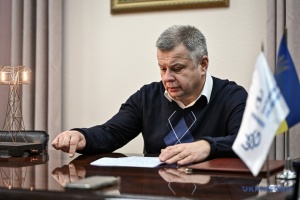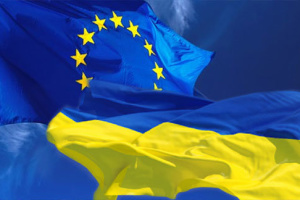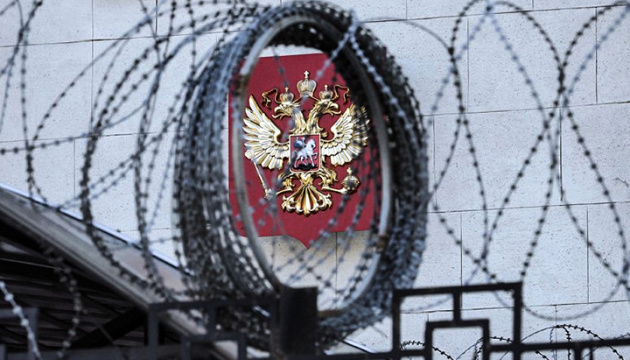
How to more effectively squeeze Russia out of global markets
As you know, with the beginning of Russia's large-scale invasion of Ukraine, in parallel with the seizure of Kremlin assets, the G7 countries, the EU, and a number of other states began to impose (or rather strengthen and expand to new markets, as partial restrictions had already been in place after 2014) sanctions against Russian exports. In particular, raw materials, which bring the Kremlin the biggest profits. In mid-March 2022, a partial ban was imposed on the import of metals, dual-use goods, and energy equipment into Russia. An embargo on timber, cement, seafood, and alcoholic beverages has been in place since April. Also, since then, Russian ships (with some exceptions) have been banned from entering EU ports.
In July of the same year, a ban was imposed on the purchase of Russian gold, and in August, Europe refused to buy coal mined in Russia. Previously, the EU used to buy EUR 8 billion worth of this fossil fuel from Russia every year.
How is the Russian economy reacting to the loss of its main markets and how can these blows be made more painful for the aggressor?

EUROPE SAYS TO GAZPROM: "GOODBYE"
The European Union, which was more than 40% dependent on the Kremlin's gas needle before the war, did not resort to direct bans on the natural gas market. However, after the end of the 2021-2022 heating season, it began to look for alternative supplies and began to actively replace fuel from Russia.
Moscow has traditionally resorted to blackmail, intimidating Europeans with a winter collapse. However, none of the several waves of intimidation and ultimatums, with a few exceptions, when European companies agreed to pay for gas in rubles and some "could not see life" without Russian oil, had any effect on the EU. As a result, the European Union has minimized the consumption of Kremlin pipeline gas and imposed price caps to prevent their rapid growth due to (including artificially created by Russia) its shortage.
The Kremlin's response was to limit the supply of "blue fuel" to Europe. At present, the only transit route through Ukraine is used for its pumping, and its capacity is utilized by no more than 40%. There is a high probability that 2024 will be the last year of pumping Russian gas through our Gas transportation system (GTS). Last October, Naftogaz of Ukraine announced that it had no plans to continue transit after the contract expires at the end of this year.
However, Russia compensated for some of the losses in this market segment in 2022-2023 by increasing its supplies of liquefied natural gas to Europe. Its exports to the EU increased by 20% compared to pre-war 2021. But last year, there was a tendency for European consumers to gradually abandon Russian LNG. According to preliminary estimates, Gazprom's revenue from fuel exports last year decreased by more than 70% (to USD 22 billion from a record USD 80 billion in 2022 due to high spot prices). Consequently, the Russian budget revenues decreased to about USD 6.5 billion against USD 24 billion a year earlier.
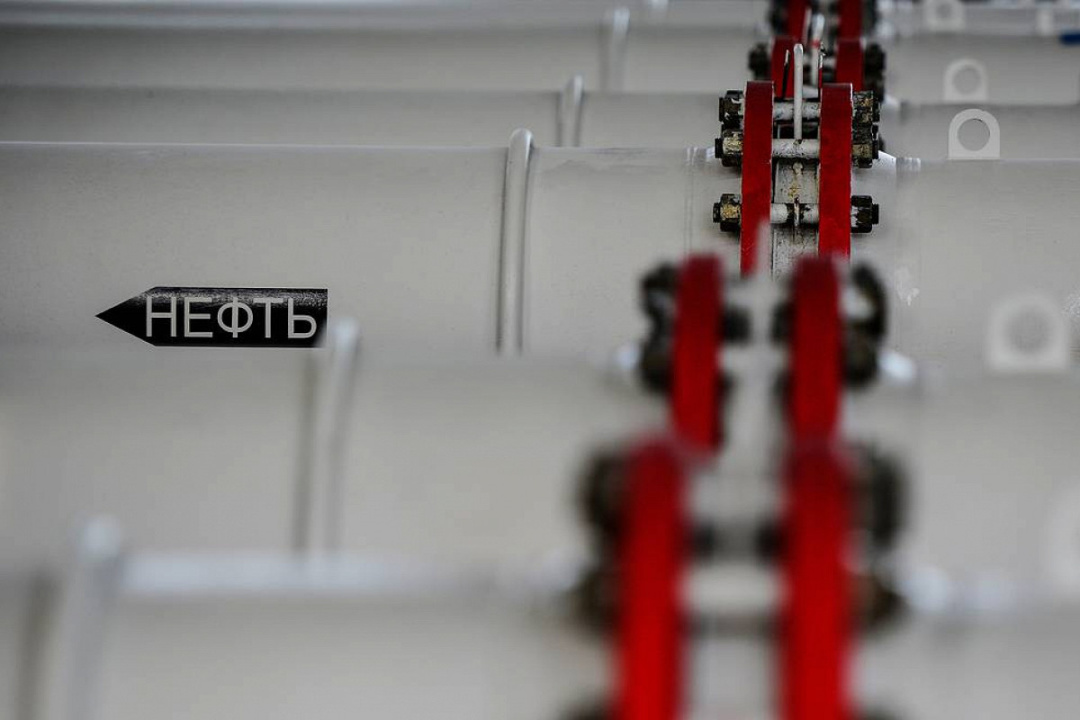
RUSSIAN HYDROCARBONS: SLIPPING THROUGH THE CRACKS
The most significant for the sanctions struggle, of course, was the introduction in late 2022 of a ban on imports to the EU and price caps (a ceiling of USD 60 per barrel) on Russian crude oil transported by sea, and from February 5, 2023, an embargo and price caps on petroleum products produced in Russia. Ukrinform analyzed this step of the civilized world separately.
However, from the very first months of the great war, Russia began to reorient oil and gas flows to Asian countries, primarily China and India, to which it sells fuel at a significant discount. Unfortunately, these countries, taking advantage of the situation, have been actively increasing their consumption of Russian hydrocarbons, as well as their processing both for their own needs and for export. And it seems that they could have bought more, if not for the limited logistical capabilities - the lack of powerful pipelines in that direction and the large transportation leverage when transporting oil by sea from the Baltic.
Experts also recall that in the first months of the oil restrictions, Russia and its partners actively resorted to various schemes, such as mixing Russian oil with raw materials of other origin, illegal transportation by the "shadow" tanker fleet, pumping fuel from ship to ship outside ports, etc. Immediately after the embargo on oil products was imposed, supply agreements were mostly concluded not openly, through brokers, but behind closed doors. So, in fact, some third-country buyers may have paid Russians more for fuel than they publicly declared. And even when public exchange contracts are concluded, the price ceiling is not always maintained.
"Last year, in October and November, Russians sold oil to India at USD 84-86 per barrel. That is, they found workarounds. For example, after processing Russian hydrocarbon raw materials in India, they are converted into derivative products and sold by this country as its own product. And this is the main problem. After raw materials, including oil and diamonds from Russia, are transported to third countries and processed there, they are considered goods originating from the processing country in most countries," says Anna Lachikhina, advisor to the chairman of the International Trade Committee in the Canadian Parliament, partner at Good Politics Communications Agency.
But by the end of the year, positive trends emerged. The higher Russia raises the price, the less willing India is to buy Russian hydrocarbons, as their processing and re-export become less profitable for Indian companies. That is, due to rising prices, Russian oil is gradually losing competitiveness in this market.
"In November, India's crude oil imports from Russia were the most expensive for the year, due to a decrease in fuel discounts. Refiners in the world's third largest oil consumer paid an average of USD 85.90 per barrel, up 1.8% from USD 84.46 in October. According to Kpler, a French commodity data aggregator, crude oil supplies from Russia to India fell from 1.68 million to 1.48 million barrels per day in December," said former Infrastructure Minister Volodymyr Omelyan.
However, this is still more than at the beginning of last year.
Thus, according to the Center for Research on Energy and Clean Air (CREA), sanctions significantly affected Russian oil export revenues only in the first half of 2023. In the first quarter, Russia "lost" an average of EUR 180 million per day on their sales, compared to 2022. But the situation for the aggressor was gradually improving. In general, the EU's ban on oil imports and the G7 price caps reduced Russia's oil export revenues by only 14%. In money terms, this is USD 34 billion. A lot, but not critical for the aggressor.
"The effectiveness of the sanctions has decreased due to insufficient monitoring and compliance with the oil price cap policy, which allows Russia to sell oil at prices above the established level of restrictions. Failure to enforce, strengthen and consistently monitor the price cap allowed Russia to minimize this impact in the second half of the year. Revenue losses decreased to EUR 50 million per day in the second and third quarters and to EUR 90 million per day in the last quarter of the year," CREA analysts stated.
In addition, due to exceptions to the general rules of regulation of this industry, Russia continues to supply petroleum products to a number of countries, primarily European countries, which have imposed sanctions, quite legally.
"A striking example is the Neftochim Burgas refinery in Bulgaria, owned by the Russian company Lukoil. A CREA investigation with partners Global Witness and the Center for the Study of Democracy found that after the ban on Russian crude oil imports came into effect, Burgas imported Russian crude, generating more than EUR 1.1 billion in tax revenue for the Kremlin," the Center for Energy and Clean Air Research explained.
Partly as part of the 12th sanctions package (effective January 1), the EU is strengthening control over compliance with the oil price ceiling. In particular, the possibilities of identifying ships and business entities that help Russia circumvent the restrictions have been expanded. European companies that sell tankers to third countries must inform the EU.

RUSSIAN AGRICULTURAL RAW MATERIALS: GRAIN STOLEN FROM UKRAINE AND GLOBAL PRICE DUMPING
As for other markets, the situation with the supply of agricultural raw materials is quite unpleasant for us. Not only does Russia earn billions of dollars from it, including by stealing grain from Ukraine (according to some reports, Russia sold USD 1 billion worth of wheat stolen from Ukrainian farmers in the temporarily occupied territories), but it is also trying to limit our agricultural exports as much as possible.
By dumping stolen agricultural products and blocking supplies from Ukraine, the Russian Federation wants to push us out of traditional markets. And, unfortunately, the enemy has partially succeeded so far, especially in the period from March to July 2022, when the Black Sea Grain Initiative was not in effect.
The most striking example is Russia's active expansion in the Egyptian market. Having blocked maritime exports from Ukraine, the Russians actively dumped, intercepting contracts. As a result, in August 2023, Egypt became the largest buyer of Russian wheat, receiving more than 900,000 tons of such products. In money terms, this is about USD 250 million.
Experts also estimate that from March 2022 to the start of the grain corridor, Russia captured about 90% of the segment of the Chinese market that usually worked with Ukraine. Thanks to the sea corridor, the situation has been partially remedied. However, we are still far from reaching the pre-war volumes of our agricultural products to China. Especially after Russia withdrew from the grain deal last July.
In addition, in 2022, the aggressor country almost completely ousted Ukraine from the Indian sunflower oil market. This was also due to the sale of products stolen in the temporarily occupied territories and the processing of Ukrainian seeds at our and their oil extraction plants.

RUSSIAN NUCLEAR POWER AND NON-FERROUS METALS: NOT YET UNDER SANCTIONS
A real sanctions "long-standing" project, the situation with which is even more complicated than with Russian diamonds (see more here), is the measures against the Russian nuclear industry and its flagship, the state corporation Rosatom. The "price of the issue" is up to USD 10 billion a year. This is how much this company earns for Russia by selling raw uranium and services for its enrichment and construction of nuclear power plants.
The fact that such sanctions could become an effective lever of influence on the Kremlin and its ambitions was discussed in the first months of the Russian invasion. However, so far, only Ukraine has managed to impose sanctions. And even then, we imposed them only a year after the start of the great war - on February 5, 2023. Our partners, on the other hand, are hesitant. First of all, because of their significant dependence on Russian nuclear fuel (for the United States, according to experts, this level is 14-28%, for the European Union - 20-26%).
Toward the middle of last year, it seemed that the main stakeholders were about to agree on sectoral sanctions, even at the expense of their own interests. However, neither the June 11th nor the December 12th packages contained sanctions against Rosatom.
At the same time, the 12th package of European sanctions, in addition to the embargo on Russian diamonds, provides for additional restrictions on the supply of pig iron, copper and aluminum wires, foil, pipes and rolled products from Russia to the EU worth EUR 2.2 billion per year. Imports of Russian liquefied propane have also been banned. However, with a 12-month transition period.
The situation is worse with a number of non-ferrous and precious metals. For example, Russia annually earns as much from the export of platinum group metals as it does from diamonds - up to USD 4 billion. But our partners are in no hurry to impose sanctions in this area. Unfortunately, the main buyers of Russian platinum and palladium are still the United States, the United Kingdom, Germany and Italy.
Russia earns even more - up to USD 7 billion a year - from the sale of copper and aluminum (also mainly to Western countries). And the main lobbyists for the non-imposition of sanctions against the Russian titanium industry are the aircraft manufacturers Airbus and Boeing.
Only last fall did sanctions begin to be gradually imposed against Russian-made iron, steel, ore, and ferroalloys. At the same time, there is no question of a complete embargo. And the delay in imposing sanctions means more than USD 5 billion more annually for the Kremlin to spend on its war against Ukraine.
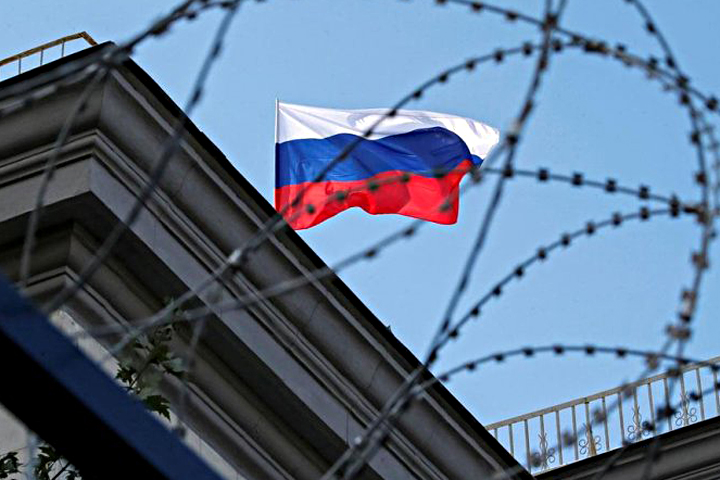
SANCTIONS PRESSURE SHOULD BE INCREASED: WHAT EXPERTS SUGGEST
As a result of the lack of coverage of entire sectors of the aggressor state's economy by sanctions, "semi-restrictions," weak monitoring of compliance with the established regimes, insufficient sanctions pressure in other areas, and the existence of exceptions and legal loopholes, Russia still earns up to USD 1.5 billion a day from raw material exports, according to some estimates. In total, it is almost half a trillion dollars a year. What can be done to significantly reduce this amount?
"The main thing is to strengthen the sanctions already imposed against the main export industries of the Russian Federation. It is important to improve the sanctions mechanism and make it impossible for Russia and those who are willing to contribute to its earnings to find workarounds. The solution that lies on the surface is the massive application of secondary sanctions. This is actually the imposition of sanctions on third parties and companies that buy, process and sell Russian goods and raw materials. This is what they want to do with diamonds. That is, sanctions are already in place on direct imports from Russia to the EU and the G7 countries, and from March 1, they will be imposed on third countries where rough diamonds are processed or resold. This should be the case with oil products, gas, and other raw materials and goods coming from Russia," Anna Lachikhina is convinced.
According to her, sanctions should apply to specific companies and financial institutions through which transactions are carried out. The expert recalls that on the eve of Christmas, the United States took an important step in this direction by imposing secondary sanctions on financial institutions that support transactions for the resale of Russian goods in any market. However, it is not yet clear whether this step will be effective, and most importantly, whether it will lead to excessive blocking of transactions on the principle of "if you get burned in milk, you will blow on water".
"Market researchers write about the likelihood of such consequences. If, for example, a banking institution sees a risk in conducting financial transactions in a segment where, without even knowing it, it can become an intermediary for a Russian company, it may refuse to conduct transactions in this market at all. This can have a negative impact on the economy of the United States and on companies that have no ties to Russia at all," Lachikhina explains.
However, despite these risks, she says there is no alternative to secondary sanctions.
In their conclusions based on the results of the aforementioned study, CREA experts advise the G7 and the EU to take the following measures to make sanctions against Russia more effective:
1. Given that Russia is dependent on European tankers and insurance, stricter enforcement in this area is needed. Penalties for violating sanctions could, for example, include a 90-day ban on providing maritime services to ships.
2. Compulsory insurance should be a key condition for tankers to pass through the Danish Straits, Gibraltar and other maritime corridors.
3. The sale of tankers by countries that have joined the oil sanctions to countries that do not apply price restrictions should be prohibited.
4. Reduce oil price ceilings. Limiting them to USD 30 per barrel would cut Russia's revenues in half, by tens of billions of dollars.
5. It is necessary to improve monitoring and compliance with the price limit, particularly at the level of banks. When processing a payment for a transaction that exceeds the threshold of restrictions, it should be recorded as a violation, with appropriate consequences.
6. Measures are needed to eliminate loopholes in oil refining. Countries that have imposed sanctions should ban all imports of petroleum products made from Russian raw materials.
It is also important to use situations such as India's unwillingness to pay for hydrocarbons supplied by Russia in CNY, as Russia demanded, or Egypt's refusal to buy Russian wheat because of its high price.
"Of course, you can play on this. If such misunderstandings and disputes arise, you should offer the same goods from other countries at a lower price and on better terms. The Middle East also produces a lot of oil. And there is potential to increase production volumes there. And the price offered by the countries of the region is lower than the one Russia is ready to offer to its partners, which, fortunately, are not so many in the world," Lachikhina believes.
And, of course, Ukraine itself should not remain a bystander to the relevant processes.
"Our diplomats are working on this constantly. And we have already achieved victories in various areas, such as improving the dialogue with the global South. Ukrainian business should be more actively involved in such efforts. We need to look for additional ways to reach countries and companies that used to import goods, including those under sanctions, from Russia. And, of course, we need to use all diplomatic platforms, continue the dialog, and stay on the agenda. Of course, Ukraine should not be a bystander. It is good when our partners speak about us, but it is much more effective to speak for ourselves, because we understand our own interests better. So Ukraine should be a leader in this," summarized Anna Lachikhina.
Vladyslav Obukh, Kyiv

